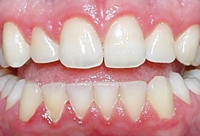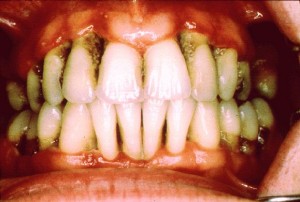When you are an expecting mother or planning to get pregnant it is important to know some oral health factors that would aid and have impact on the health of mother and the growth of fetus.
When to see a dentist?
It is best to see a dentist before you plan for pregnancy. It is easier to treat your dental decays and gum disease before you get pregnant as body changes may complicate some of the dental diseases.
If you are pregnant, it is best to do dental check up in the second trimester. (4 to 6 months into pregnancy). It is not advisable to go during the first trimester as usually you may find gagging a problem.
There are no contraindications to have dental treatment after the second trimester. I had performed a minor oral surgery of wisdom tooth on an 8 months pregnant lady as it is an urgent case for her. Some people find seeing dentist really tiring at the end of pregnancy because they could not sit on dental chairs too long. If you want to have dental treatment in the third trimester make sure you are comfortable with it as sometimes anxiety could induce labor.
Dental problems during pregnancy
Gingivitis and Periodontitis
Body hormone changes cause gums to swell swiftly while reacting to dental plaque. If your oral hygiene is not good, your gingivitis (gum swelling) would develop faster than usual.It would be known as pregnancy gingivitis. If you have existing gingivitis it would escalate to periodontitis (severe and advance form of gum swelling that involves tooth mobility, foul breaths and oral infections).
Bacteria associated with gingivitis and periodontitis would travel from bleeding gums into bloodstreams and rest in placenta. Consequently the placenta would be inflamed and affecting the health of mother and child. In some severe cases, it would cause still births or miscarriages.
Oral bacteria produce high levels of prostaglandin in women with severe periodontitis. This chemical induces labor therefore causes preterm births and low birth weights.
Avoid medicine
It is important to let your dentist know that you are pregnant. It is advisable not to take any medication during pregnancy. If it is inevitable, dentist would prescribe certain safe medications. Please do not exceed the dosage of the prescribed medication. It is also advisable to ask your gynecologist on drugs safety.
Avoid radiation through dental x rays
Dentist needs to take radiographs for certain procedures like root canal treatment, minor oral surgery for wisdom tooth and dental implant. If it is possible try to defer those treatments. If you are having toothache the dentist may perform some emergency measures to reduce the pain first and continue your treatment after you deliver. Radiation causes abnormal fetal growth so it is best to be avoided.
Oral Hygiene Instructions For Pregnant Women
Maintain routine brushing and flossing twice a day. Brushing must be effective to eradicate dental plaque. Go for scaling if you notice your gums bleed a lot while brushing.
You could use non- alcohol fluoridated mouth rinse to help maintain healthy gums.
You must rinse each time after meal to prevent food sticking onto teeth.
Avoid sweet and sticky food as they promote dental plaque formation and dental decay. You could substitute them with cheese, honey, fresh fruits and vegetables. Eating green apples help reduce dental plaque.
Conclusion
Good oral health starts from young. If you could maintain your oral condition well, you would be a great example for your child in the future.




Pingback: Tweets that mention Oral Health Guidelines for Pregnant Women | Intelligent Dental -- Topsy.com
Valuable info. Lucky me I found your site by accident, I bookmarked it.
Great site. A lot of useful information here. I’m sending it to some friends!